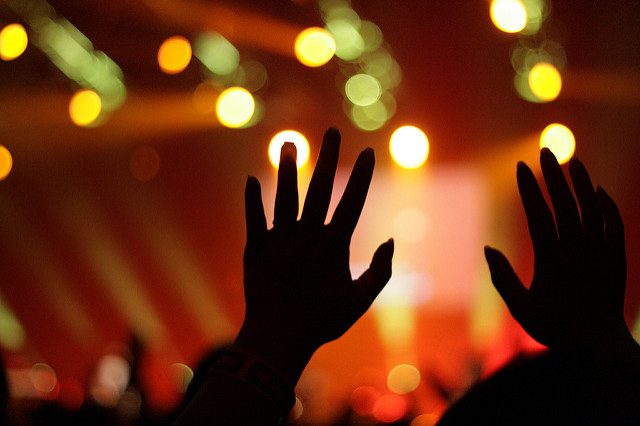I received this comment on my recent post: A Call To Reject Orgasmic Worship and Return To Liturgy.
My name is Jason Houtsma and I actually wrote that set list guide for Worship Artistry.
One of our members brought this article to my attention and while I agree with some of your points, I think you have unintentionally misrepresented the Worship Artistry community in your article.
As you mentioned in one of your comments, context matters and I might suggest your article has taken my set building guide not only out of its original context, but also out of the greater context of our website. Perhaps if you listen to one of our podcasts, read a few more articles or even view a song tutorial or two, you will have a different sense of what we are about and the heart behind what we do.
It was never my intention to promote emotionalism, but only to help worship leaders be aware of the humanity of their congregations and help lead them to a place where they can engage God without distraction.
A funny thing happened during the 19th century when we moved the revival tent indoors. Worship became chiefly about winning souls with fiery preaching and emotional testimony. Gospel songs took the place of chanting, Psalm singing, and rigorous hymnody. This sort of preoccupation created an inhospitable environment for liturgy, ritual, and sacraments. Those things didn’t stir up the emotions enough. They didn’t attract big crowds. Most of all, they didn’t bring about cheap and easy aisle traffic.
Those pastors-turned-revivalists found out that music worked really well at accomplishing the goal. It could set the stage for their main act. It could create lots of good feelings in the crowd, cultivating a sort of responsiveness that could so mistakenly be mistaken for the presence of God’s Spirit.
Music is a huge part of my life. It’s my vocation and avocation. I like listening to it, particularly if it’s live music made by real, acoustic instruments. I love to watch musicians display skills I will never master. I love conducting music, I like playing it, and more than anything, I love singing it. I’ve completed degrees in three completely separate disciplines, but music will always be my first love.
Music is my living, too, as I serve the local church. So, as you can imagine, I have a stake in the continuation of good art music from the past and present used in worship of God.
So it is with some measure of regret that I remind us there are some things music just can’t do. Music has become a de facto sacrament to the church. Don’t believe me? Just ask your pastor if he or she would agree to celebrating Holy Communion every week, and having music only once per month. That about how that would fly. My guess is that it wouldn’t.
But Jesus couldn’t have been clearer as to where he would be found, and he didn’t point to the music. No, he pointed to the Table.
Most evangelicals, along with the mainline Christians looking to commercial Christian music as an institutional life preserver, use music as if it were a sacrament. Even those who believe there is no such thing as a sacrament. Through their music, they allow themselves to be carried away on an emotional level into a perceived sensory connection with the divine. The purpose of liturgical music is shifted from formation to mystical engagement. When this happens, we are trying to make music into a substitute bread and wine, even though the real presence of Christ isn’t found in it.
Music can be a beautiful gift. It adds another dimension to sacred storytelling, and when undertaken as a joyful discipline it can bind the truth of the gospel to our hearts. But it doesn’t usher in God’s presence. The music is to serve the liturgy, not deliver the divine presence to our hearts and lives.
I can understand why Jason feels that I’m taking his guidelines out of context. But I still think I have understood him and others who have used this argument before. I grew up in a contemporary tradition that tried the same formula to “connect” people with God. The discrepancy between that position and mine arises from a different view of the function of worship in the Christian life. I know that Jason and others like him feel as if they are leading the human element into engagement with the divine through a strategic process of ratcheting up the intensity. But theologically I have to step back for a moment and ask a question.
How does one perceive this engagement with God?
According to Jason and many other so-called “worship leaders,” it’s about controlling musical intensity.
But what kind of intensity is this? It is emotional intensity. Is it that God’s spirit only begins to move among us when we sing, as if we were chanting some pagan incantation? I can’t believe this is so. Biblically and historically, singing has not been put in that place before, and we must not put it there now.
What happens when we are engaged and strategically amped up by “worship” music? Emotions pull us along with the music we’re hearing. Again, this isn’t necessarily bad in and of itself, but when the “worship leader” is planning a set of songs to pull the hearts (emotions) of congregants toward a mystical God connection, we are asking the music to do too much.
I can’t tell you what a relief this should be for church musicians. It means we are not the “worship leaders.” The pastors are the worship leaders. We don’t have that kind of weight on our shoulders. I know I don’t want it. But because music is not a sacrament, I don’t have to serve as some kind of cosmic tour guide. I don’t have to forge a divine connection out of sound waves. My job is merely one of musical leadership. And that in itself is an act of worship.
Basically, we need to keep music in its proper place. Otherwise, instead of eliminating distractions, the music itself might be the biggest distraction of all.











